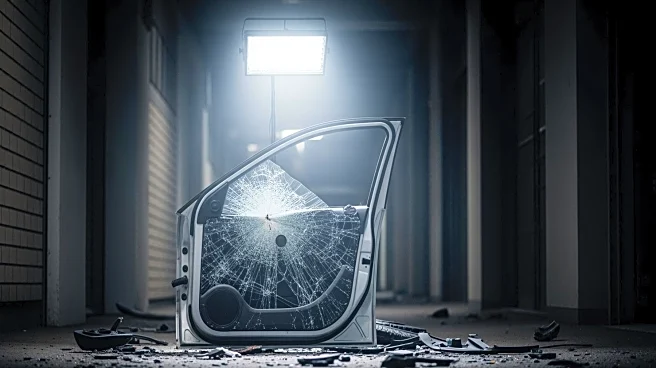What's Happening?
Indian police are investigating a deadly car explosion near New Delhi's historic Red Fort under the Unlawful Activities (Prevention) Act, India's main anti-terrorism law. The explosion occurred late Monday,
killing at least eight people and injuring several others. Forensic experts are working to determine the cause of the blast, which originated from a Hyundai i20 car that had stopped at a traffic signal. Nearby vehicles were badly damaged, and police are attempting to trace the car's owner. Prime Minister Narendra Modi, currently visiting Bhutan, stated that investigators would 'get to the bottom of this conspiracy.' No arrests have been made, but police are probing all possible angles, including a terror attack, accidental blast, or car failure.
Why It's Important?
The investigation under India's anti-terrorism law highlights the severity of the incident and the potential threat it poses to national security. The use of the Unlawful Activities (Prevention) Act allows broader powers to detain suspects, indicating the seriousness with which authorities are treating the case. The explosion's proximity to the Red Fort, a major tourist attraction and symbolic location for Independence Day speeches, underscores the potential impact on public safety and tourism. The incident has prompted heightened security measures at major train stations and key installations in the capital, reflecting concerns over further threats.
What's Next?
Investigators are expected to continue probing the incident, with forensic teams analyzing the use of explosives. The recovery of arms and explosive materials in a separate incident in Haryana state may provide leads. Security agencies are reviewing footage from cameras in the area, which could play a crucial role in identifying suspects. The investigation's outcome may influence future security protocols and anti-terrorism measures in India.
Beyond the Headlines
The incident raises questions about the effectiveness of current security measures and the potential need for increased vigilance in crowded areas. The use of anti-terrorism laws in such cases may lead to discussions on civil liberties and the balance between security and individual rights.









